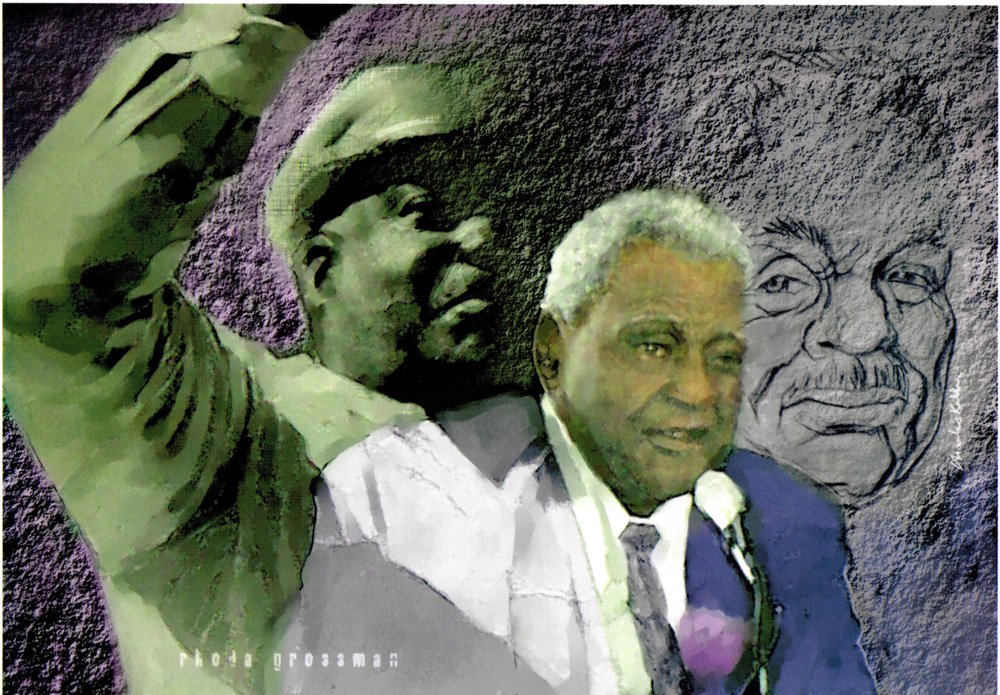EFWA
Marks More Than 50 Years of Successful Organizing
1972 - 2022
EFWA members at I.M. Young Cutchogue labor camp, circa 1972.
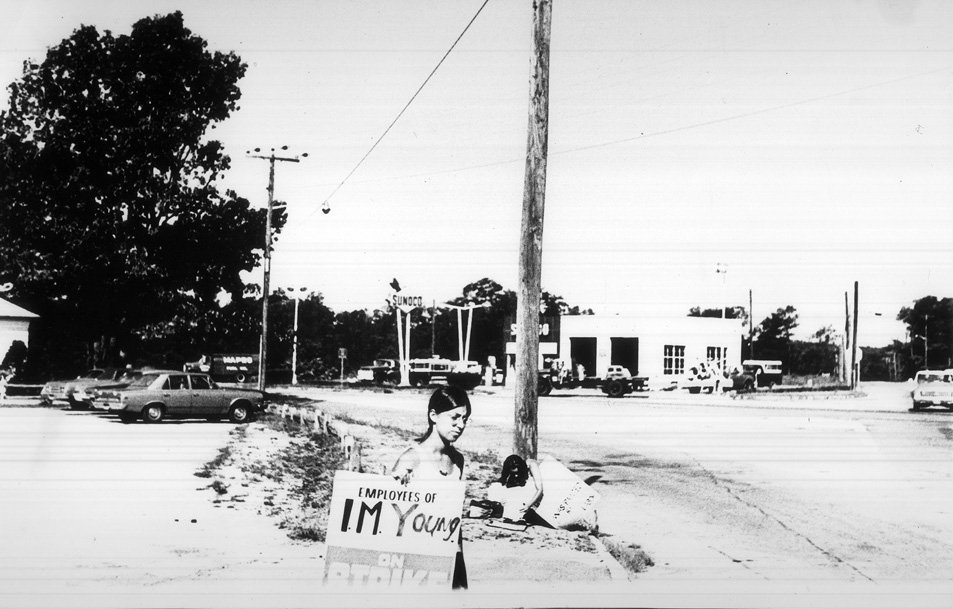
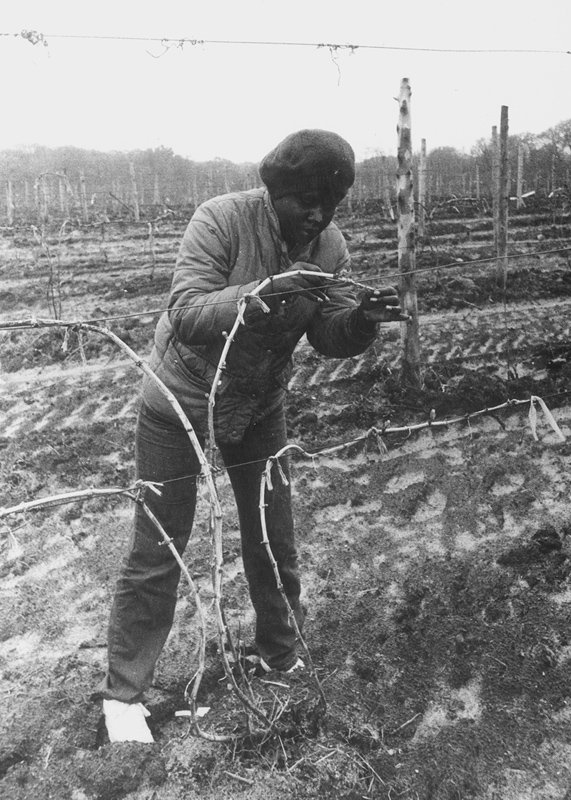

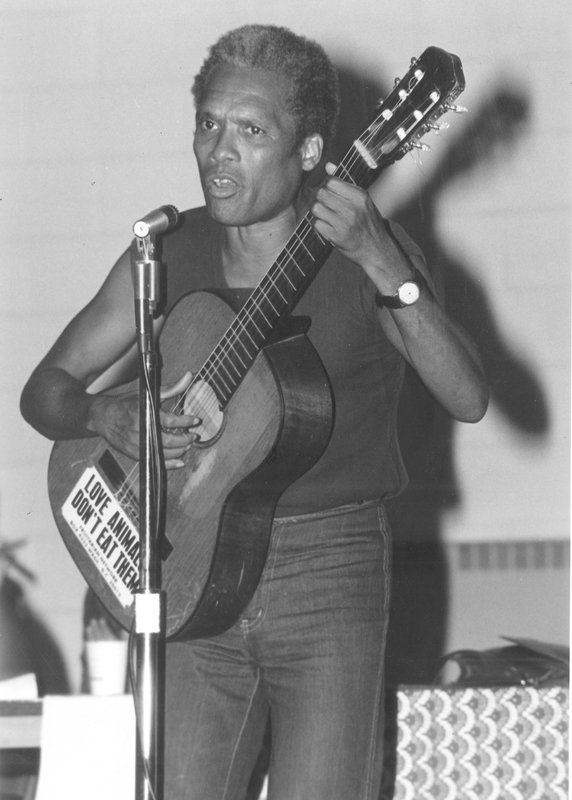

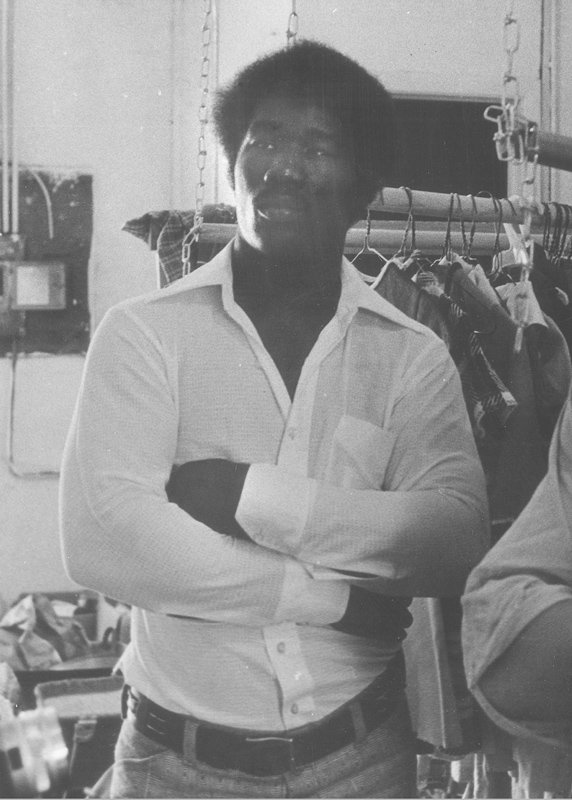

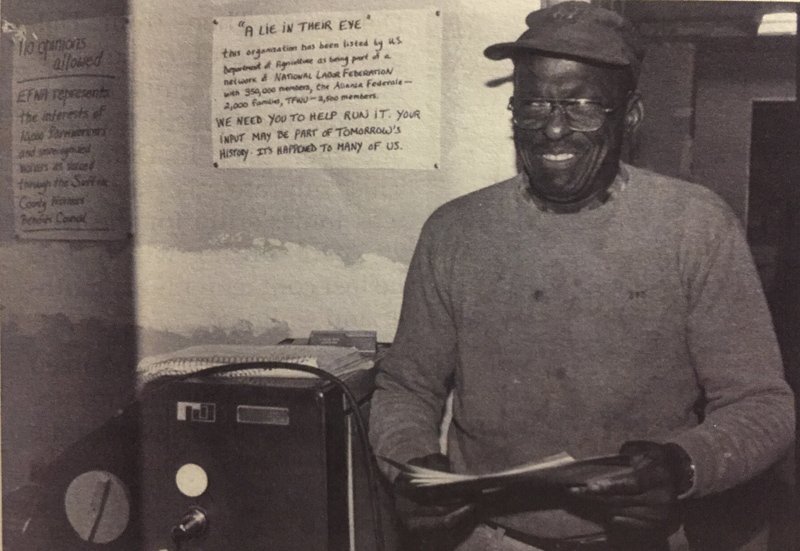

EFWA pioneered Systemic Organizing, a new method of organizing for labor that overcame decades of defeatism and demoralization as aptly depicted by Edward R. Murrows’ documentary Harvest of Shame. Systemic Organizing united historically unorganized workers and brought to their side a broad group of allies including religious leaders, community activists, students, professionals, small business owners and local agricultural growers. The method became a model used by organizers nationwide to organize the poorest workers.
Systemic Organizing is a method based on the principle that an organization is strong because it is an organization. It allows anyone who dares to care and is willing to work, to learn how to organize and become a leader.
With more than 50 years of winning victories for low-income workers, EFWA has stayed true to its goal and membership. All-volunteer. No government funding. Its office remains open seven days per week, 365 days per year. A material demonstration of the method of Systemic Organizing. Here to win, here to stay!
EFWA Milestones
These are just a few of the victories EFWA accomplished during its first 50 years! There is so much more… To get involved call EFWA (631) 286-8004.
1968 — The Long Island Farm Worker Service Center (Railroad Avenue Center) opens in Riverhead. Participants include many who go on to found Eastern Farm Workers Association (EFWA): Robert T. Burns, Clifford Cody, Junior Eason, Polly Gardner, Jeannie Friedman, Arthur Herron and others.
May 1972 — EFWA begins with the founding of its Organizing Committee, including farm workers and community allies from Railroad Avenue Center, as well as others including George Lee Joyner, Clarence Sutton and Junior Eason. EFWA holds its first community meeting and door-to-door canvassing to sign up low-income workers in Brentwood, where the first EFWA field office was located. EFWA signs its first member in Brentwood.
July 1972 — EFWA member Louis Oquendo was beaten by police in Brentwood, spurring EFWA members to launch a campaign against police brutality in Suffolk County.
October 1972 — Operation Camp Crew began signing EFWA members on East End migrant farm labor camps.
December 1972 — In what became an historic farm labor strike, migrant workers contracted to work in I.M. Young company’s potato grading operations decide to put up a picket line protesting the grader’s withholding work. Workers led by Rastus “Pop” Harris contact EFWA, sign up as members and request support for their action against I.M. Young.
EFWA begins an informational picket line that ran continuously until November 1975 — the longest continuously running agricultural picket line on the Eastern Seaboard.
December 8, 1972 — The I.M. Young strikers were illegally evicted from I.M. Young’s Calverton labor camp. EFWA member and organizer Arthur Herron crawled through an unlocked window at the back of the camp and assisted the illegally evicted workers back onto the camps while a volunteer EFWA attorney obtained a stay of the eviction.
March 1973 — EFWA moved Office Central from its first storefront location at 1735 Montauk Highway to 58 Beaver Dam Road in Bellport. In June, EFWA opened a Benefit Office at 48 Beaver Dam Road in the same building.
December 10, 1973 — First general medical session held at the Spencer Hopson Memorial Farm Workers’ Health Center, housed at Riverhead Community Service Center (RCSC) and named for EFWA member whose skull was crushed by a potato harvester in September 1973.
October 1974 — EFWA members establish the Suffolk County Workers Benefit Council (WBC) to oversee the development of EFWA’s Membership Benefit Program and discuss living and working conditions. The Council serves as a essential decision making body for all future EFWA actions.
August 1976 — EFWA organizes a Disaster Relief Unit in response to Hurricane Belle.
1979 — EFWA members with active tuberculosis were found on a migrant labor camp in Jamesport and on Ludlam Place in Greenport. Working with volunteer doctors, EFWA organizers assisted in identifying, tracing and reporting cases of tuberculosis to the county health department. However, their lack of response led to a landmark lawsuit filed by a volunteer attorney against the Suffolk County Department of Health and the County Executive aimed at forcing the county to carry out its legal obligation towards diagnosis, treatment and follow-up of patients with tuberculosis.
February 1980 — EFWA gains a court order against the Village of Greenport and stops illegal evictions of members on Ludlum Place, Greenport until residents can relocate. EFWA runs around-the-clock arson patrols to protect homes that were targeted for a redevelopment project.
1983 — EFWA brings an appeal to the UN Special Committee on Decolonization, protesting the conditions of Puerto Rican migrant workers at Suffolk County farm labor camps.
1984 — As Suffolk’s wine industry was burgeoning, EFWA members formed the Grape Workers’ Committee out of the Suffolk County Workers Benefit Council. At the request of the Committee, Texas Farm Workers Union (TFWU) President Antonio Orendain went to Suffolk to teach workers in the grape-growing industry how to use ring knives to harvest grapes, improving their ability to obtain higher wages.
1985 — In honor of Junior Eason, who died in a car accident in 1982, EFWA organizers renamed the EFWA service center in Riverhead to the Junior Eason Center. Organizers then began a massive renovation and a county-wide procurement campaign with the assistance of volunteers from labor camps and the building trades. The Junior Eason Center gave EFWA members in the Riverhead-area access to EFWA’s Benefit Program and the ability to unite and organize at a central location, however, the center was embattled by repeated eviction attempts by economic and political interests who wanted to redevelop downtown without the farm workers service center. With the help of EFWA members and volunteer attorneys, the Center stayed open for another three years.
October 1989 — EFWA Operations Manager Phyllis B. Sonabend appears on CBS Evening News speaking at a public hearing to expose and condemn the Bellport “Save-a-House” HUD scandal after several private individuals enriched themselves through purchasing and renting out homes that were to be made available by this HUD program for low-income families to purchase.
1998 — EFWA expands membership canvass to Farmingville in response to the illegal ejection of 68 Mexican day laborers.
1998 — EFWA supporters and friends of labor form a Trust in honor of Phyllis B. Sonabend, former EFWA Operations Manager, who was tragically killed in an automobile accident in May of 1997 while taking a member to a donated medical appointment. EFWA and the Trust kick off a campaign to organize support to buy the historic Beaver Dam Road building, which has housed the EFWA Office Central since 1973.
Summer 2001 — EFWA organizers assist Puerto Rican members at the 40-resident Imperial Nursery farm labor camp when the 40-plus year old camp closes down permanently, leaving the workers with no source of reliable income or housing for their families.
Summer 2002 — Development campaign begins to bring in the resources to renovate the 58 Beaver Dam Road Office Central facility, to render all 10,000 square feet usable as office space. Renovation begins that September.
November 2002 — EFWA completes a 600-plus Thanksgiving turkey basket distribution to enrolled members.
Spring 2004 — United Methodist Church L.I. East District made EFWA their Mission Project for the church year from fall 2004 through the summer of 2005.
November 2004 — EFWA attends and staffs an informational table about EFWA’s organizing programs at the 2004 Annual Convention of the Episcopal Diocese of Long Island upon invitation from the Bishop’s Office. This becomes an annual EFWA activity.
Winter 2007 — Survival English class attendance grows to 49 attendees, with members attending from several surrounding farm labor camps and neighborhoods.
July 13, 2007 — EFWA celebrates 35 years of struggle with the completion of EFWA’s Office Central facility renovation and landscaping.
Winter 2010 — With the “Great Recession,” members come in for emergency food and clothing from as far west as Woodside, Queens.
August 2011 — EFWA expands its membership phone tree and organizes disaster relief following damage done by Hurricane Irene.
November 2012 — Superstorm Sandy devastates the Northeast; EFWA distributes thousands of clothing items and food items, while the region is without power. EFWA canvassers reach out to Ludlum Place, Greenport and Mastic Beach as the two hardest hit areas. EFWA holds legal sessions on how to get funding from FEMA.
July 2015 — EFWA installs solar panels on the Office Central in line with EFWA’s commitment to protect the planet and carefully utilize its resources.
March 2020 — During COVID-19 pandemic shutdown, EFWA operations expand to respond to the expressed needs of the membership for non-contact emergency food and hygiene product distributions and testing information.
March-June 2021 — EFWA heads vaccination campaign with NAACP and SEPA Mujer, and runs vaccine sessions with Dr. Ferguson at St. Andrew’s Episcopal Church in Mastic Beach and Kurt Weiss greenhouses in cooperation Bill Zalakar.
2022 — EFWA celebrates its 50th anniversary.
August 2023 — Workers Benefit Council slams 24% National Grid rate hike at remote public hearing held by New York State Public Service Commission.
Remembering Renowned EFWA Leaders
Clifford Cody
Clifford Cody, affectionately known as "Cody" to thousands of EFWA members and their extensive network of allies among religious and business leaders, academics and activists throughout Long Island and across the nation; a working class leader par excellence and a highly respected professional volunteer organizer whose reputation reached coast to coast; an oral historian of the farm worker struggle of the East Coast migrant stream; a former member of the Black Panthers Organization of Long Island; founder of the Long Island Farm Worker Service Center; President of the Organizing Committee of Eastern Farm Workers Association (EFWA), and the Suffolk County Workers Benefit Council.
Cody entered the migrant stream at the age of 22, coming to Suffolk County in 1959 with several friends on the promise of better pay when a recruiter for a crew chief in Riverhead, New York offered more money than he was making. A few short weeks of grading potatoes showed him how he and the other workers were being cheated of their hard-earned wages. Unwilling to work under these conditions, Cody soon left the labor camp and found a better-paying job at a moving company, but he was not willing to leave his brother farm workers behind. He became a stalwart in the farm workers struggle for justice for more than five decades.
His participation in EFWA spanned a range of activities and leadership roles. In EFWA’s fledgling days, Cody took volunteer organizers to the often hard to find and more difficult to enter farm labor camps to reach the workers. He helped lead the renovation what eventually became the Junior Eason Community and Health Service Center in Riverhead, NY. When Arthur Herron passed in February 1998, Cody replaced him in the role of EFWA Organizing Committee President. He also eventually took on the role of WBC President. In 2000, after EFWA purchased the building in Bellport that served as Office Central since 1973, Cody took a leading role in garnering the support and resources needed to renovate the 10,000 square foot complex. Its successful completion in 2007 marked a major milestone in EFWA’s history.
Cody’s list of contributions to the farm work struggle is endless. He provided invaluable insight into current conditions when groups of potential volunteers and others joined farm labor camp visits to see farm worker conditions firsthand. He took every opportunity to let young people know about the need for them to step up as leadership in the struggle because he knew that it would be the youth who would be needed to continue the struggle.
Clifford Cody’s lifetime of dedication as a guiding force in the movement for change inspired scores of organizers and hundreds of thousands of workers across the country benefited from the movement for which he laid a foundation for future fundamental change.
Illustration by Mary E. Libby
Robert T. Burns
The life and legacy of Robert T. Burns remains part of the very foundation of Eastern Farm Workers Association (EFWA). Robert T. led the way for migrant and seasonal farm workers in Suffolk County, helping to guide EFWA from its inception in 1972 until his death in 1991. His memory continues to guide us today.
Born in Mississippi on August 27, 1931, Robert T. Burn began his life as a farm worker, a son of share croppers. He picked cotton as a very young child, dragging the bag bigger than he behind him. Robert T. never forgot his beginnings, nor the struggle for survival, and his life-long search for justice took many forms.
After serving in WWII, he joined his father in Chicago’s South Side and became active in the nascent civil rights movement. He then moved to the South where he encountered the efforts of the famed civil rights leaders, brothers Medgar and Charles Evers. Thereafter he moved from civil rights to farm labor organizing, before moving to Suffolk where he met Clifford Cody, Junior Easton and others to form the Railroad Avenue Service Center and helped found EFWA.
Robert T.’s organizing activities encompassed the Civil Rights Movement’s “Freedom Rides,” the Black Panther Party’s benefits programs and community service center for the eastern Long Island community and the just cause of farm workers in Suffolk County and across the nation.
Robert T. Burns arose as a leader from the very struggle itself; a man determined to rise with his class and not apart from it. He taught and trained hundreds of young organizers and showed them to be an organizer you had to care, and you had to work.
Junior Eason
Junior Eason was born into a farm worker family in North Carolina and became a farm worker himself. He moved up North like many thousands before him.
He first did farm work, then service work, including managing the local restaurant, Howard Johnson, located in Riverhead and would provide free hamburgers to EFWA organizers in the early parts of its founding. Junior saw that he needed to rise with his class not above it.
Prior to the founding of EFWA, Junior Eason and Clifford Cody worked together at the Railroad Avenue Service Center as members of the Black Panthers. They worked to build a bridge to the white community of Suffolk using the Black Panther’s newspaper to explain the need for systemic changes in the conditions facing African Americans in specific, and the poor in general.
Junior enthusiastically joined EFWA’s Organizing Committee and became its first Vice President. When EFWA organizers opened the Riverhead Community Service Center, Junior Eason took the lead in its renovation making it a functional office for EFWA and other organizations fighting to address the poverty conditions of Suffolk.
Junior was killed tragically in a car accident in 1982 at the age of 40. It was through this tragedy that the Riverhead Community Service Center was renamed the Junior Eason Community and Health Service Center in his honor. And his legacy carries on.
Illustration by Rhoda Grossman
Arthur Josh Herron
Known to friends throughout Long Island as “Big Arthur,” Mr. Arthur Herron was a champion of Suffolk County’s farm workers and other unrecognized workers throughout the last 30 years of his life. Arthur Herron was an original member of Eastern Farm Workers Association (EFWA), dating back to its founding in 1972 and had participated in the Long Island Farm Worker Service Center and Railroad Avenue in Riverhead during the late 1960’s.
Mr. Herron was instrumental in the first and longest successful farm labor action east of the Mississippi, the I.M. Young strike, which began in December on 1972. When the striking workers were illegally evicted from I.M. Young’s Cutchogue labor camp, it was Mr. Herron who crawled through an unlocked window at the back of the camp and assisted the illegally evicted workers back onto the camps while a volunteer EFWA attorney obtained a stay of the eviction.
For over two decades, Mr. Herron was a delegate to the Suffolk County Workers Benefit Council and with that grouping staunchly defended the rights of farm workers.
Mr. Herron originally came to Suffolk in 1962 as a farm labor contractor, organizing groups of workers to work for Suffolk growers. Mr. Herron always insisted that the men working under him were entitled to their fair share, and this principled stand eventually led Mr. Herron to leave the contracting business in disgust. As an organizer, Mr. Herron would tell the story of how the economic system made it impossible to work as a labor contractor without exploiting labor, and Mr. Herron impressed his convictions upon other labor contractors in the area to help EFWA gain access to organize their workers.
Known to friends throughout Long Island for his hearty laugh, Mr. Herron remained true to the last. From his hospital bed in his final days of his life he continued to encourage new volunteers to carry on the struggle to which he had dedicated his life.
George Lee Joyner
George Lee spoke on behalf of migrant farm workers in May of 1972 at the very first community meeting to kick off EFWA’s now 50-year-old organizing drive. There were about 1000 people from many different backgrounds at the meeting in a large auditorium at Stony Brook University. George Lee had never spoken to any group of more than five people in his life, and had never addressed a crowd. But he was determined to get the message across. He knew the other workers were as scared as he was, in front of a large diverse audience. But as he explained later, he knew if he did not speak, there was the risk that no one else would speak either, and the meeting would go for naught.
The situation in May of 1972 was particularly intense. The Railroad Avenue Service Center, active in the preceding years, had been a source of hope for those wanting to build organization that could change poverty conditions; however, those who wanted to exploit farm and other low-paid workers, and African Americans in specific, had been doing everything they could to stop that effort, founded by the Black Panthers.
George Lee got on the stage. Despite his stuttering, and resorting back to his heavy Geechee dialect, and with a lot of sweat and nervous shaking, he shouted out what the farm workers needed. He got the farm worker message across and made history as the voice of the farm worker to help inspire EFWA’s historic success and precedent as the first successful organizing drive uniting seasonal and migrant farm workers on the East Coast.
George Lee never tried to be a crowd pleaser. If he said he could get something done, you could consider it done.
James Mitchell
James Mitchell, farm worker and farm worker organizer, a man of few words but a tireless and meticulous worker…he graded and packed potatoes. From Maryland he went to Delaware. Then from Delaware, to Peconic, Long Island, then to Virginia, then to Florida, then North Carolina and then back to Delaware. This migrant worker cycle was James's life for 29 years.
On many days James working as a farm worker in Suffolk, as part of a crew of twenty, they would load four tractor-trailers of potatoes with ten skids per trailer, each with 45 50-lb. bags of potatoes. At 5' 6" James used to make hundreds of trips to load the skids with a 50-1b. bag of potatoes under each arm. James also paid special attention to cleaning the equipment. Often after a long day of grading potatoes James would clean the vat, which the farmer would pay him extra money for. This led to James being nicknamed "Mud" as he would comeback to the labor camp covered in mud from head to toe after cleaning the vat.
James met volunteer organizers with the Eastern Farm Workers Association (EFWA) in 1982 while working for Frank Tetterton, a crew chief in Riverhead. James signed up as an EFWA member that day. Soon afterwards, James came into EFWA's field office in the Riverhead Community Service Center. That year James decided he had had enough traveling and settled down on Long Island, living on unemployment in Mattituck and spending more and more time volunteering with EFWA in Riverhead where he maintained the food and clothing office. He became a delegate to the Workers Benefit Council (WBC) in 1984 and helped to build the Grape Workers Committee in 1985.
He remained a dedicated full-time EFWA organizer until he was no longer able.




